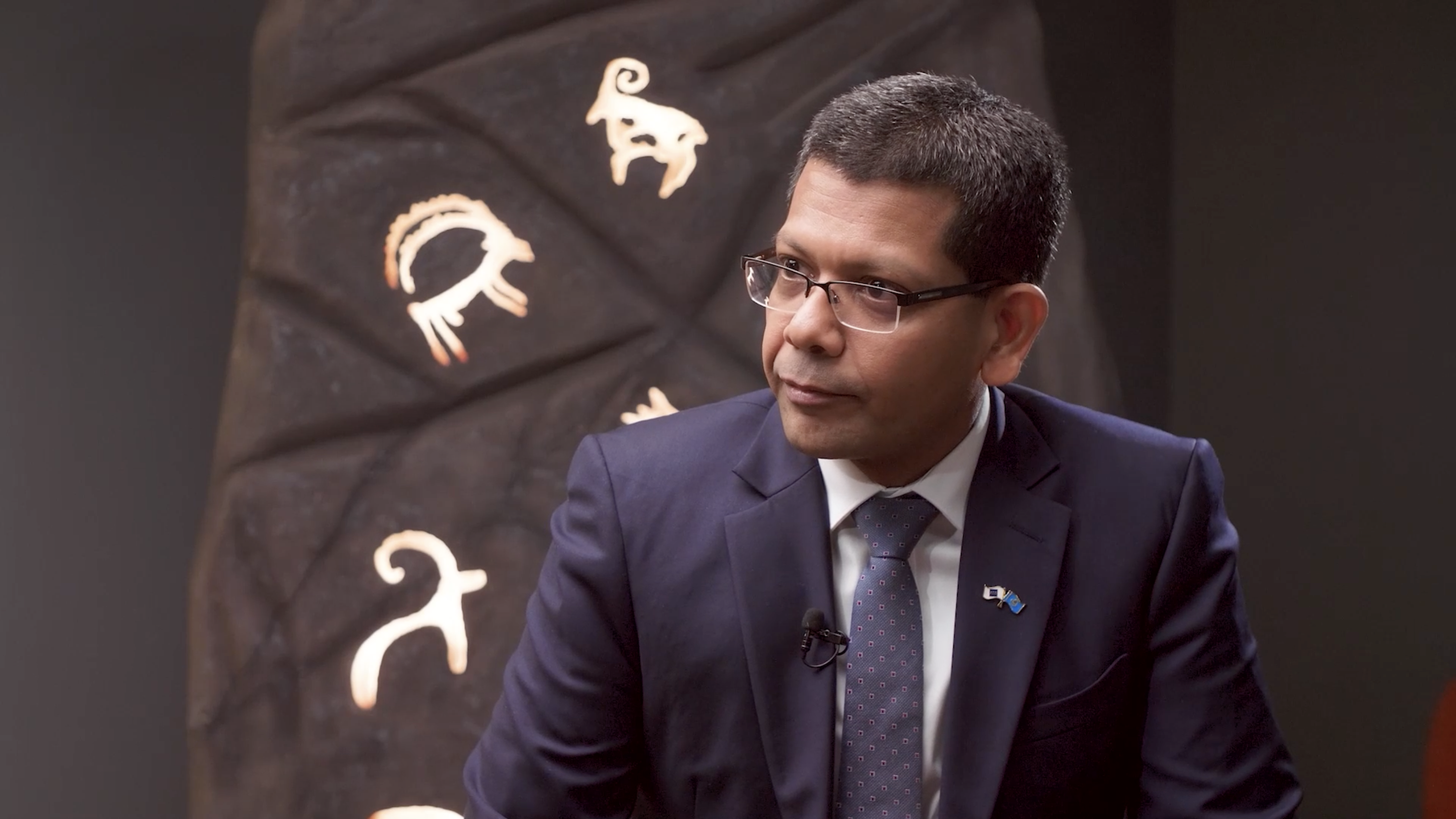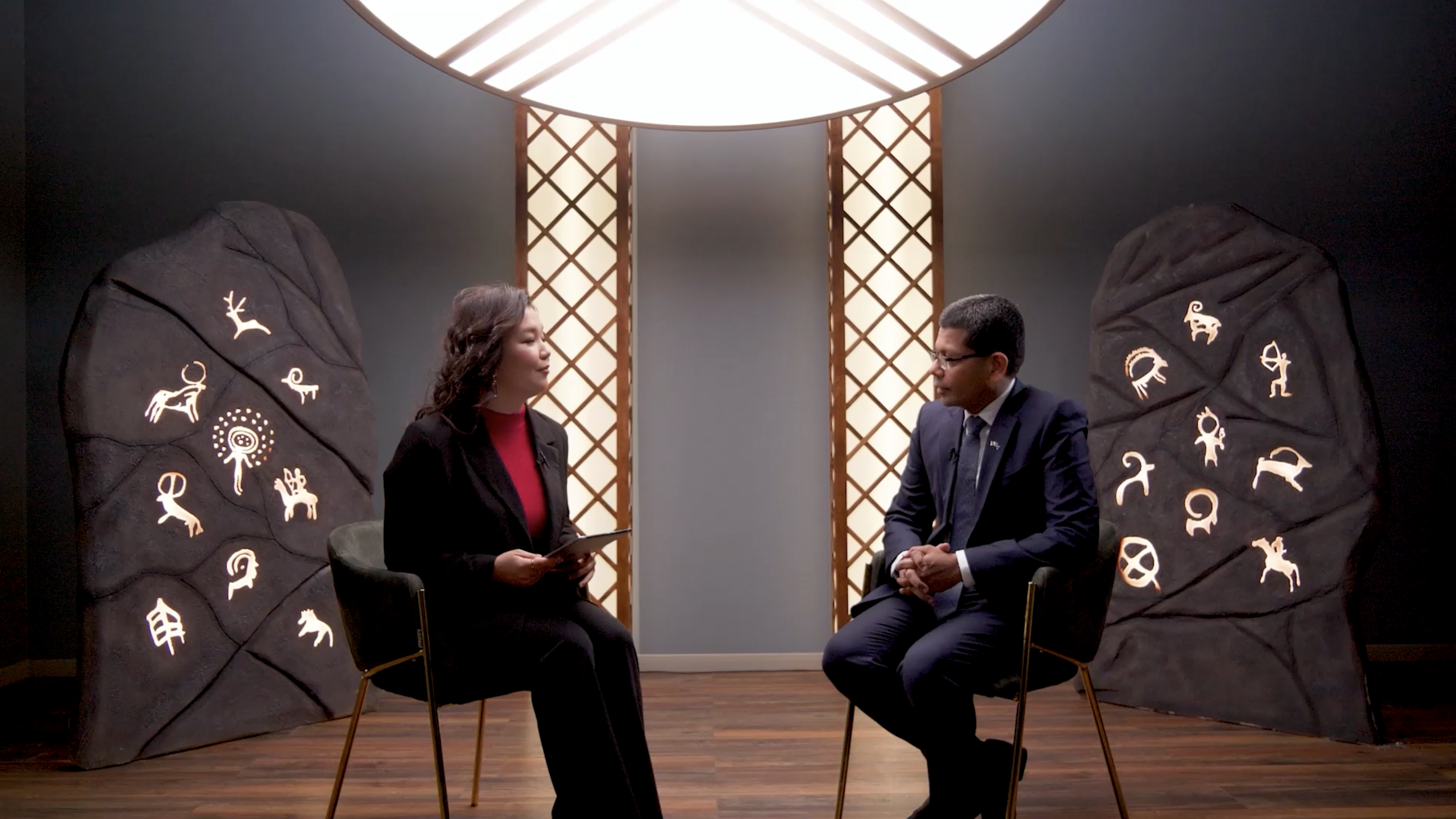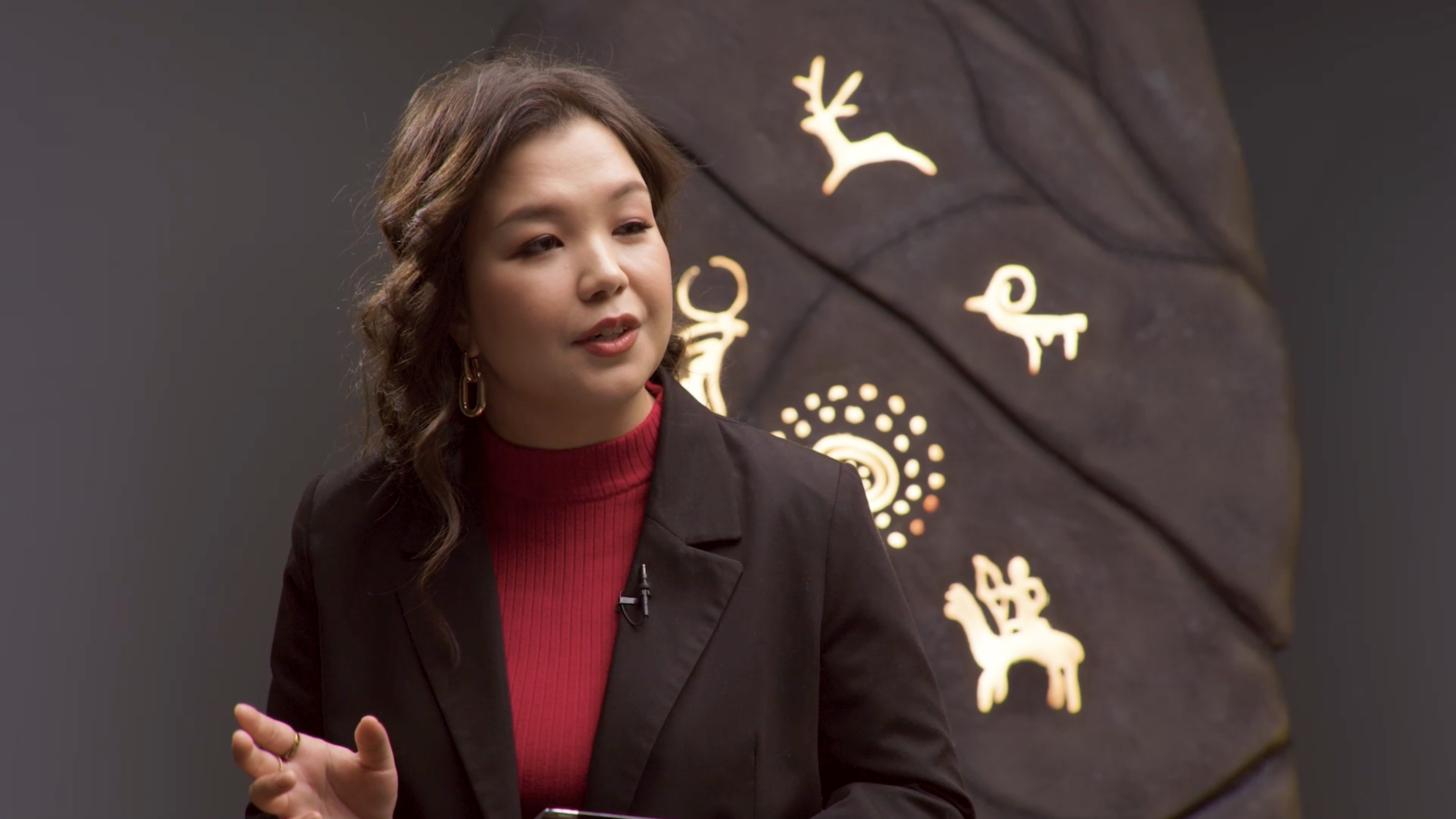ASTANA – In 2024, Kazakhstan and the Asian Development Bank (ADB) celebrate 30 years of partnership. In a recent interview with The Astana Times, ADB Country Director Utsav Kumar shares key milestones and opportunities in a three-decade journey.

Utsav Kumar was appointed as ADB Country Director for Kazakhstan in April 2024. Photo credit: The Astana Times.
Kazakhstan was the first country in Central Asia to join ADB in 1994. Kumar describes the three-decade partnership as multifaceted, transformative, and collaborative.
“I say multifaceted because over the past three decades, ADB has worked with Kazakhstan on a wide range of development issues, and we have supported a wide range of sectors. For example, transport, infrastructure, agriculture, social sector as well as financial sector. Over these 30 years, we have committed nearly $7.5 billion in financing, both sovereign and non-sovereign. Just this year, in 2024, we have committed $776 million in sovereign and non-sovereign financing,” said Kumar.
Kumar stressed the importance of the strong partnership and mutual trust that the ADB and Kazakhstan have built over 30 years.
“None of what I have said would have been possible without the collaboration and the mutual trust that we have developed and being able to cultivate with our partners in the government, in the private sector, development partners, think tanks, and civil society,” he said.
ADB priorities in Kazakhstan
When asked about the key areas where Kazakhstan and ADB can strengthen the partnership, Kumar pointed out efforts to tackle climate change, ensure inclusive economic growth, and build macroeconomic resilience.

The Astana Times Senior Editor Assel Satubaldina and Mr. Utsav Kumar. Photo credit: The Astana Times.
ADB’s operations in Kazakhstan are guided by the Country Partnership Strategy that was endorsed in 2023. Kazakhstan’s decarbonization agenda is a central focus of the strategy.
“We all know Kazakhstan is one of the most energy-intensive economies in Central Asia, and studies have shown that temperatures in Kazakhstan are likely to rise faster than the global average. What that will mean is droughts and water scarcity. On the other hand, that will also mean glacier melting, and that poses risks in terms of floods,” said Kumar.
He commended Kazakhstan’s commitments under international agreements, including the Paris Agreement.
Ensuring that growth benefits all the country’s citizens is also a priority, he said. Achieving this requires enhancing access to finance, education, health services, and improving connectivity, Kumar added.

Assel Satubaldina. Photo credit: The Astana Times.
“Usually, headlines are focused on economic growth, but it is important that growth benefits all the citizens of the country, that it reduces regional equalities between rural areas and urban areas and other socio-economic disparities. This will entail improving access to finance, education and health services, and connectivity,” said Kumar.
In terms of connectivity, in October, ADB approved a $291.49 million local currency loan to KazAvtoZhol to reconstruct 208 kilometers of road in central Kazakhstan. The project will upgrade the Kyzylorda-Zhezkazgan highway to a climate-resilient, higher-standard two-lane road, improving connectivity, road safety, and trade. Travel time will be cut from four to two hours.
In October as well, ADB also provided Arnur Credit with a $5 million loan to support micro, small, and medium-sized enterprises in Kazakhstan. The loan prioritizes women-led businesses and green loans. At least 50% of the funds will go to women-led businesses and 10% to green loans for energy-efficient equipment and renewable energy projects.
“In health, we have been mandated by the government to support a new 300-bed Karagandy Medical University Hospital, which will improve access to health services and medical education. We are working with Satbayev University [in Almaty] to pilot public-private partnerships in student housing accommodation, a new 5,900-bed facility,” he said.
One of the key focus areas for ADB is building macroeconomic resilience.
“Over the past 30 years, we have supported the country not just through projects but also in times of need, such as economic downturns, by providing budget support and deficit financing,” said Kumar. “We are working with the government to strengthen public financial management and enhance financial sector development.”
These efforts aim to address fiscal and financial constraints that can hinder growth. In December 2023, to support these reforms, ADB signed a $350 million policy-based loan.
Private sector development is another priority. Kumar stressed the critical role of the private sector in driving growth, innovation, and investments.
“As part of our midterm review of the Strategy 2030, we announced a $13 billion target for private sector financing across our member countries, as well as 40% of sovereign operations are directed towards private sector development,” said Kumar.
Economic projections
In its latest September report, ADB projects 3.6% growth in 2024. In 2025, Kazakhstan’s economic growth is expected to accelerate to 5.1%.
The ADB has marginally revised downward its economic growth outlook for Kazakhstan in 2024, following weaker service expansion in the first half of the year coupled with lower oil outputs, massive floods, and a slowdown in investment.
“We are continuously monitoring the situation, and we will be putting out a fresh set of projections in April. We have taken note of the commendable targets that the government has set of 6%. I think the question in front of us is how to achieve higher growth. Not just higher growth, but how to ensure that growth can benefit the citizens of Kazakhstan, and also how to make that growth resilient,” he said.
According to Kumar, Kazakhstan’s future economic growth hinges on reducing its dependence on natural resources and expanding into higher-value sectors.
“Over the years, what we have seen is crude oil is the single largest export item in Kazakhstan’s export basket. That share has come down. There has been diversification into other sectors of the economy. Of course, we would like to see more diversification and less reliance on resources as we go forward. I think the country is moving in that direction, which is well recognized in some of the plans and policy announcements we hear,” said Kumar.
A recent report by the ADB sheds light on Kazakhstan’s position within global value chains, revealing that its exports are heavily concentrated in low-complexity goods and shorter stages of production. The report suggests that these characteristics limit opportunities for innovation and value addition. The path forward, it argues, lies in diversifying into more sophisticated industries, such as aerospace components and automotive parts, which offer greater economic upside.
Realizing this vision, however, will require overcoming entrenched structural barriers.
“First is developing an enabling business environment not just for the small businesses but also for foreign direct investment in non-resource sectors because that’s where we want to diversify. The second would be looking at how to improve access to finance and strengthen capital markets. A key input into any economic activity is human capital,” he explained.
“One thing that investors look for is certainty. Sound macroeconomic management is a key part of that. Building resilience to climate shocks is a key part of that, as well as certainty and a predictable tax environment,” he said.
Kumar said he was encouraged by the recent wave of economic policy announcements in Kazakhstan, including the new economic policy, the decree on economic liberalization, and the concepts of investment policy, public finance management, and financial sector development.
“These point to the right ambitions and right direction for the economy,” he added.
Climate change a top priority
Kumar stressed Climate change presents an existential threat to the planet and ADB is committed to continue supporting Kazakhstan in addressing climate change-related risks.
Citing ADB’s recent Asia-Pacific Climate Report, Kumar said the Asia-Pacific accounts for over 50% of global greenhouse gas emissions. The region faces a potential GDP loss of nearly 17% by 2070 under a high-emission scenario.
ADB has committed $100 billion in climate financing by 2030. Kumar noted the allocation of funds will depend on project readiness, quality, and the borrowing capacity of member countries.
When asked how ADB supports Kazakhstan in addressing climate change impacts, Kumar said the support spans policy, advisory, and investment efforts.
The bank provided technical assistance for the country’s new heat supply law, which sets higher efficiency standards, improves heating reliability, and integrates renewable energy.
ADB is also working with the government on an energy transition mechanism (ETM) to phase out coal in favor of cleaner energy sources and is advising on small hydropower projects in southeastern Kazakhstan.
On the investment front, ADB has financed several renewable energy initiatives, including the Baikonur Solar and MCAT projects, and approved a $200 million loan in 2023 to transition the Almaty electric station from coal to gas. ADB also recently partnered with KEGOC, the national grid operator, to strengthen southern Kazakhstan’s grid infrastructure, enhancing renewable energy transmission.
Full interview is available on our YouTube channel.
